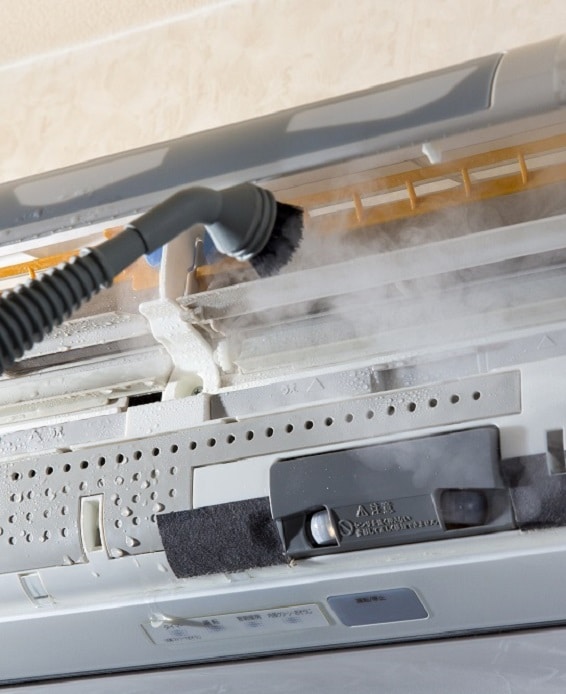Disposal of Old Units
An environmentally safe solution
New York, Brooklyn, Bronx, Manhattan, Queens and beyond AC & HVAC disposal service.
That’s because ACs contain refrigerant, which can contribute to climate change. In older appliances, these are chlorofluorocarbons (you might know them by their nickname, CFCs). Newer units contain hydrochlorofluorocarbons or hydrofluorocarbon. Yes, all of those names sound the same—don’t worry about distinguishing between the three of them, because they’re all pretty bad for the environment. All three act as greenhouse gases if released into the atmosphere, and with the exception of the last one, will deplete the ozone layer. If your AC winds up in a landfill with the refrigerants still inside, they will leak out and go into the sky and wreak havok.
NYC Residential Air Conditioner Repair Cooling Heating Service. We do a variety of things that are kind of bad for the environment all the time—including using electricity to run ACs in the first place—so what’s so bad about taking this particular life shortcut? A lot. Refrigerants are such powerful greenhouse gases that venting the refrigerant inside a single AC unit boosts the greenhouse effect as much as driving a car over 3,000 miles, according to EPA spokesperson Melissa Harrison. Basically, carelessly throwing out an AC unit has roughly the same environmental impact as taking a road trip from Seattle to Miami. (It’s less fun, too—or at least involves fewer Spotify playlists). A few cities have municipal services that will come pick up your air conditioner. If you are in New York City, you can make an appointment with the Department of Sanitation using this online form. You’ll leave the unit curbside, and someone will come remove the CFCs on the designated day. They’ll then tag the appliance and it will be removed on the next trash day. (It’s a good idea to leave a note on the unit to indicate that it’s broken so that no one else picks it up.)
Our Services
What we can help with

Service & Maintenance
Our service cannot be rivaled, all our technicians are experienced and professionals.

System Repair
If your air conditioning system is blowing warm air or if it has started to make a strange noise, call our number right away.

Cleaning
Whether you need help cleaning your HVAC or Air Conditioners we got you covered with our thorough service.

Heating Systems
Properly sizing your heating system for your home is critical to making sure that you get efficient and consistent heat.

Windows Units
We offer the residents of NYC window AC installation. If you need a set of window AC units, we have you covered with the best equipment.

System Replacement
If you are having constant problems with your air conditioner, it may be time to replace it. It makes more financial sense to replace your unit.

This Can Be Secondary Heading
Serving the industry for 15 Years.
Check Out Our Reviews Today!






Get 15% discount on your first service.
General Questions
What model or product is best for my situation?
Does my new air conditioner qualify for a Federal Tax Rebate?
What causes ice to build up in an air conditioner?
Icing can be caused by a number of factors. Units that have not been cleaned over a long period of time may have coils and fins clogged by dust, dirt or debris. Clogged coils and fins restrict air flow through the unit, which can cause the compressor to work even harder – so hard, that it may reduce the coil temperature below the normal range in an attempt to make up for the lost cooling power from the blocked coils.
Another potential cause is running a unit with a very cold set point (i.e. turning the target temperature down very low) on low fan speed for an extended period of time. This can cause excess condensate to build upon the coils, further lowering the temperature of the coil and leading to icing.
Water is draining into my room from my air conditioner. What do I do?
This problem generally has one of two causes: the unit was not installed properly with the outside lower than the inside to allow for adequate exterior drainage, or there may be a clog in the drain pan where condensate collects during operation.
If you feel that neither of these conditions exists, check for air leaking in from the outside anywhere around the unit. Air leaks will cause condensation to form on the outside of the unit, and this water will drain into your room. If there are any air leaks, resealing them should address the problem.




See what our clients have to say.







